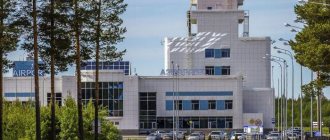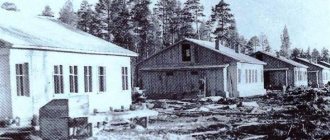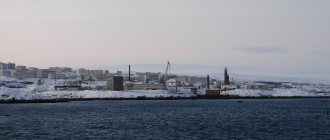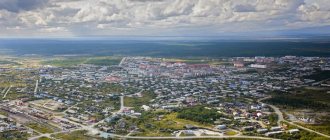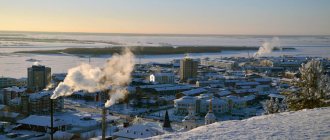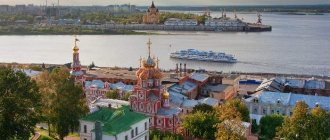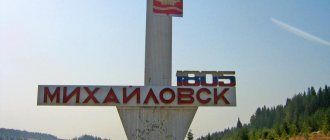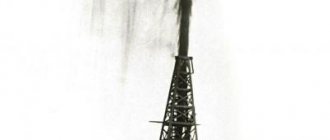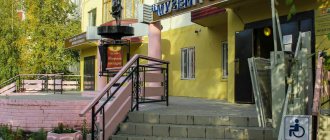Information about the city of Lyantor
Lyantor is the only city and the largest settlement in the Surgut region. Located in the northern taiga zone on the left bank of the Vachim-Yagun River, 95 kilometers northwest of the city of Surgut, with which it is connected by road.
Pages of history: from Pym to Lyantor
The deposit received the name of a large and beautiful lake - Lent-tora, which translated from Khanty means “snow lake”, subsequently the working village became known as Lyantorsky, and then the city - Lyantor.
The village of Pim arose as a trading post, recognized for collecting the products of the economic activities of the indigenous people - the Khanty. Later, all the ancestral lands of the inhabitants of the Pim River basin, fishing and animal fishing tools, and personal herds of deer became part of the collective farm named after M.I. Kalinina.
In 1963, seismic exploration work began on the Pima land. The first well was drilled in 1965 by B.N. Melik - Karamova Ust-Balyk oil exploration expedition. Oil marked the beginning of great changes in the life of the village. On March 11, 1978, the first oil exploitation workers arrived in Pim. In the fall of 1978, construction began on the road to the bridge on the Pim River, which was supposed to provide communication with the city of Surgut and the delivery of construction materials and equipment.
In 1982, Pim was recognized as the best village of Glavtyumennefteprom at the Exhibition of Economic Achievements of the USSR.
In 1984, by Decree of the Presidium of the Supreme Soviet of the RSFSR, the village of Pim was renamed into the working village of Lyantorsky. Neighborhoods, schools, shops were built, a hospital, an ambulance station, a cultural center, a bus station, a children's music school, and an ethnographic museum were opened.
On May 18, 1992, by the Decree of the Presidium of the Supreme Soviet of the RSFSR, the village of Lyantorsky was given the status of a city with the name Lyantor.
Modern Lyantor ranks 11th in population in the district. The city is located on the left bank of the Pim River at the confluence of the Vachim-Yagun River, 180 km from the capital of the district and 95 km from the city of Surgut and is connected with it by a highway. However, it is remote from busy transport routes, which creates certain difficulties in the development of the city's infrastructure. The distance to the city of Khanty-Mansiysk is 485 km.
The climate is sharply continental. Winter is cold and long - from the second half of October to April. The average January temperature is −19-25°C. Stable snow cover from October to May. Spring is cooler than autumn, frosts (down to −3°C) are possible in the first week of June. Summer is warm, the average temperature in July is +15-25°C. Autumn is from late August to mid-October. Sometimes there are severe winters from 20 to 50 degrees below zero.
Different nationalities live in the city, among them: Russians - 51.4%, Tatars - 9.9%, Ukrainians - 8%, Bashkirs - 4%, Kumyks - 3.5%, Tajiks - 2.5%, Azerbaijanis - 2 %, Chuvash - 1.7%, Chechens - 1.4%, Lezgins -1.2%, Nogais - 1%, Uzbeks - 1%, Armenians - 0.8%, Kazakhs - 0.8%.
The intracity bus line has a single route covering most of the city. The route is serviced by the Lyantorsky ATP and does not operate on weekends, holidays and all summer.
Bus services regularly depart from the city bus station to Surgut and Nizhnesortymsky.
The basis of the city's economy is largely determined by the development of the industrial complex - oil and gas production. The main influence on the development of the city's economy and the production of industrial products is exerted by the city-forming enterprise - the oil and gas production department "Lyantorneft" of OJSC "Surgutneftegas" with a workforce of more than 4 thousand people and structural divisions of OJSC "Surgutneftegas" - Lyantorskoye derrick, road construction, construction and installation departments, Lyantorskaya mobile mechanized column, geophysical works department, technological transport department and department for in-field collection and use of petroleum gas.
People from dozens of different professions are involved in the process of oil production: oil and gas workers, geologists and builders, energy workers and transport workers.
The city operates on Yekaterinburg time. The difference with Moscow time is +2 hours msk+2.
The telephone code of Lyantor is 34638. The postal code is 628449.
Sources: Surgut region in the kaleidoscope of time: digest reference book. In 14 books/Adm.Surgut. district; Book 6: Urban settlement Lyantor/MUK “Lyantor. CBS”; comp. V.I. Budko. — 90 p.: photo.
Lyantor now:
[print_gllr id=365]
Economy
Oil and gas industry enterprises, gas processing plant. In the vicinity of Lyantor there are greenhouse farms of industrial enterprises. They raise pigs and poultry. Lyantorskoye and Nizhnesortymskoye oil and gas fields.
Currently, the Lyantorneft oil and gas production department is developing and operating 9 fields: Lyantorskoye, Maslikhovskoye, Nazargaleevskoye, Saninsky, West Kamynskoye, North Seliyarovskoye, West Sakhalinskoye, Synyeganskoye and Yavinlorskoye. The Yuzhno-Lyaminskoye field is expected to be put into development in 2016.
Along with solving production issues, management pays great attention to issues of social development of Lyantor. Housing construction is constantly underway in the city, and comprehensive assistance is provided in solving citywide problems.
Excerpt characterizing Lyantor
– Why didn’t you convince Bonaparte through diplomatic means that it was better for him to leave Genoa? – Prince Andrei said in the same tone. “I know,” Bilibin interrupted, “you think it’s very easy to take marshals while sitting on the sofa in front of the fireplace.” This is true, but still, why didn’t you take it? And do not be surprised that not only the Minister of War, but also the August Emperor and King Franz will not be very happy with your victory; and I, the unfortunate secretary of the Russian embassy, do not feel any need to give my Franz a thaler as a sign of joy and let him go with his Liebchen [sweetheart] to the Prater... True, there is no Prater here. He looked straight at Prince Andrei and suddenly pulled the collected skin off his forehead. “Now it’s my turn to ask you why, my dear,” said Bolkonsky. “I confess to you that I don’t understand, maybe there are diplomatic subtleties here that are beyond my weak mind, but I don’t understand: Mack is losing an entire army, Archduke Ferdinand and Archduke Charles do not show any signs of life and make mistakes after mistakes, finally, alone Kutuzov wins a real victory, destroys the charme [charm] of the French, and the Minister of War is not even interested in knowing the details. “That’s exactly why, my dear.” Voyez vous, mon cher: [You see, my dear:] hurray! for the Tsar, for Rus', for the faith! Tout ca est bel et bon, [all this is fine and good,] but what do we, I say, the Austrian court, care about your victories? Bring us your good news about the victory of Archduke Charles or Ferdinand - un archiduc vaut l'autre, [one Archduke is worth another,] as you know - even over a company of Bonaparte's fire brigade, that's another matter, we'll thunder into the cannons. Otherwise, as if on purpose, this can only tease us. Archduke Charles does nothing, Archduke Ferdinand is covered in shame. You abandon Vienna, you no longer defend it, comme si vous nous disiez: [as if you told us:] God is with us, and God is with you, with your capital. One general whom we all loved, Shmit: you bring him under the bullet and congratulate us on the victory!... Agree that it is impossible to think of anything more irritating than the news you bring. C'est comme un fait expres, comme un fait expres. [It’s as if on purpose, as if on purpose.] Besides, well, if you had definitely won a brilliant victory, even if Archduke Charles had won, what would it have changed in the general course of affairs? It is too late now that Vienna is occupied by French troops. - How busy are you? Is Vienna busy? “Not only is she busy, but Bonaparte is in Schönbrunn, and the count, our dear Count Vrbna, goes to him for orders.” Bolkonsky, after the fatigue and impressions of the journey, the reception, and especially after dinner, felt that he did not understand the full meaning of the words he heard. “Count Lichtenfels was here this morning,” Bilibin continued, “and showed me a letter in which the French parade in Vienna is described in detail. Le prince Murat et tout le tremblement... [Prince Murat and all that...] You see that your victory is not very joyful, and that you cannot be accepted as a savior... - Really, it doesn’t matter to me, it doesn’t matter at all! - said Prince Andrei, beginning to understand that his news about the battle of Krems really had little importance in view of such events as the occupation of the capital of Austria. - How was Vienna taken? What about the bridge and the famous tete de pont [bridge fortification] and Prince Auersperg? “We had rumors that Prince Auersperg was defending Vienna,” he said. “Prince Auersperg stands on this, our side, and protects us; I think it protects very poorly, but it still protects. And Vienna is on the other side. No, the bridge has not yet been taken and, I hope, will not be taken, because it is mined and they have ordered it to be blown up. Otherwise, we would have been in the mountains of Bohemia long ago, and you and your army would have spent a bad quarter of an hour between two fires. “But this still does not mean that the campaign is over,” said Prince Andrei. - And I think it’s over. And so the big caps here think, but they don’t dare say it. It will be what I said at the beginning of the campaign, that it is not your echauffouree de Durenstein, [the Durenstein skirmish] that gunpowder will decide the matter, but those who invented it,” said Bilibin, repeating one of his mots [words], loosening his skin on the forehead and pausing. – The only question is what the Berlin meeting of Emperor Alexander with the Prussian king will say. If Prussia enters into an alliance, on forcera la main a l'Autriche, [they will force Austria] and there will be war. If not, then the only question is to agree on where to draw up the initial articles of the new Campo Formio. [Campo Formio.] - But what extraordinary genius! - Prince Andrei suddenly cried out, squeezing his small hand and hitting the table with it. - And what happiness is this man! - Buonaparte? [Buonaparte?] - Bilibin said questioningly, wrinkling his forehead and thereby making it felt that now there would be an un mot [word]. - Bu onaparte? - he said, emphasizing especially the u. “I think, however, that now that he is enacting the laws of Austria from Schönbrunn, il faut lui faire grace de l'u. [we need to rid him of i.] I decisively make an innovation and call it Bonaparte tout court [simply Bonaparte]. “No, no joke,” said Prince Andrei, “do you really think that the campaign is over?” - That's what I think. Austria was left in the cold, and she was not used to it. And she will repay. And she remained a fool because, firstly, the provinces were ruined (on dit, le Orthodox est terrible pour le pillage), [they say that the Orthodox is terrible in terms of plunder,] the army was defeated, the capital was taken, and all this pour les beaux yeux du [for the sake of beautiful eyes,] Sardinian Majesty. And therefore - entre nous, mon cher [between us, my dear] - I instinctively hear that we are being deceived, I instinctively hear relations with France and projects for peace, a secret peace, separately concluded. – This can’t be! - said Prince Andrei, - that would be too disgusting. “Qui vivra verra, [We’ll wait and see,”] said Bilibin, unraveling his skin again as a sign of the end of the conversation. When Prince Andrei came to the room prepared for him and lay down in clean linen on down jackets and fragrant heated pillows, he felt that the battle about which he had brought news was far, far away from him. The Prussian Union, the betrayal of Austria, the new triumph of Bonaparte, the exit and parade, and the reception of Emperor Franz for the next day occupied him. He closed his eyes, but at the same moment the cannonade, gunfire, the sound of carriage wheels crackled in his ears, and then again the musketeers stretched out like a thread were descending from the mountain, and the French were shooting, and he felt his heart shudder, and he rode forward next to Shmit, and bullets whistle merrily around him, and he experiences that feeling of tenfold joy in life, which he has not experienced since childhood. He woke up... “Yes, it all happened!..” he said, smiling happily, childishly to himself, and fell asleep in a deep, young sleep. The next day he woke up late. Renewing the impressions of the past, he remembered first of all that today he had to introduce himself to Emperor Franz, he remembered the Minister of War, the courteous Austrian adjutant, Bilibin and the conversation of yesterday evening. Dressed in full dress uniform, which he had not worn for a long time, for the trip to the palace, he, fresh, lively and handsome, with his arm tied, entered Bilibin’s office. There were four gentlemen of the diplomatic corps in the office. Bolkonsky was familiar with Prince Ippolit Kuragin, who was the secretary of the embassy; Bilibin introduced him to others.
Summary statistics for Lyantor
Summary statistics of the total number of houses built according to Lyantor, indicating the total area by year.
| Year of construction | Total area | Number of houses | Number of apartments | Living space | Non-residential area | Non-residential premises |
| 2020 | 5908 | 2 | 117 | 5908.00 | 0.00 | 0 |
| 2019 | 2911.46 | 1 | 64 | 2911.46 | 0.00 | 0 |
| 2016 | 1849 | 2 | 42 | 1539.00 | 310.00 | 2 |
| 2015 | 4098 | 1 | 80 | 4098.00 | 0.00 | 0 |
| 2014 | 12283 | 3 | 195 | 9812.00 | 2471.00 | 8 |
| 2012 | 17881 | 2 | 321 | 16753.00 | 1128.00 | 1 |
| 2010 | 9739 | 1 | 170 | 8583.00 | 1156.00 | 0 |
| 2009 | 3085 | 1 | 60 | 3085.00 | 0.00 | 0 |
| 2008 | 14366 | 2 | 220 | 12669.00 | 1697.00 | 0 |
| 2007 | 10383 | 4 | 179 | 10070.00 | 313.00 | 0 |
| 2006 | 6237 | 2 | 120 | 6049.00 | 188.00 | 0 |
| 2005 | 46110 | 4 | 722 | 43924.00 | 2186.00 | 18 |
| 2004 | 25047 | 7 | 457 | 24159.00 | 888.00 | 6 |
| 2003 | 10129 | 3 | 192 | 10129.00 | 0.00 | 0 |
| 2002 | 55609 | 6 | 755 | 55230.00 | 379.00 | 3 |
| 2001 | 17592 | 6 | 296 | 16679.00 | 913.00 | 6 |
| 2000 | 2490 | 1 | 33 | 2490.00 | 0.00 | 0 |
| 1999 | 4548 | 2 | 57 | 4548.00 | 0.00 | 0 |
| 1998 | 21952 | 4 | 329 | 21697.00 | 255.00 | 3 |
| 1997 | 9777 | 3 | 164 | 9727.00 | 50.00 | 0 |
Notes
- ↑ 12
www.gks.ru/free_doc/doc_2016/bul_dr/mun_obr2016.rar Population of the Russian Federation by municipalities as of January 1, 2016 - ↑ 1234567
www.MojGorod.ru/hmao/ljantor/index.html People's encyclopedia “My City”. Lyantor - [www.perepis2002.ru/ct/doc/1_TOM_01_04.xls All-Russian Population Census 2002. Volume. 1, table 4. Population of Russia, federal districts, constituent entities of the Russian Federation, districts, urban settlements, rural settlements - regional centers and rural settlements with a population of 3 thousand or more]. [www.webcitation.org/65AdCU0q3 Archived from the original on February 3, 2012].
- [www.gks.ru/bgd/regl/b08_14t/IssWWW.exe/Stg/ur/05-00.htm Cities of the Khanty-Mansiysk Autonomous Okrug - Ugra (number of inhabitants - estimate as of January 1, 2008, thousand people) ]. Retrieved July 11, 2016. [www.webcitation.org/6ivWjf9ee Archived from the original on July 11, 2016].
- [www.gks.ru/bgd/regl/B09_109/IssWWW.exe/Stg/d01/tabl-21-09.xls Number of permanent population of the Russian Federation by cities, urban-type settlements and districts as of January 1, 2009]. Retrieved January 2, 2014. [www.webcitation.org/6MJmu0z1u Archived from the original on January 2, 2014].
- [tumstat.gks.ru/wps/wcm/connect/rosstat_ts/tumstat/resources/22904e804154168ab3dff7367ccd0f13/part+1.rar All-Russian population census 2010. Population size and its distribution in the Tyumen region]. Retrieved May 10, 2014. [www.webcitation.org/6PTJWMhJj Archived from the original on May 10, 2014].
- [www.gks.ru/free_doc/doc_2012/bul_dr/mun_obr2012.rar Population of the Russian Federation by municipalities. Table 35. Estimated resident population as of January 1, 2012]. Retrieved May 31, 2014. [www.webcitation.org/6PyOWbdMc Archived from the original on May 31, 2014].
- [www.gks.ru/free_doc/doc_2013/bul_dr/mun_obr2013.rar Population of the Russian Federation by municipalities as of January 1, 2013. - M.: Federal State Statistics Service Rosstat, 2013. - 528 p. (Table 33. Population of urban districts, municipal districts, urban and rural settlements, urban settlements, rural settlements)]. Retrieved November 16, 2013. [www.webcitation.org/6LAdCWSxH Archived from the original on November 16, 2013].
- [www.gks.ru/free_doc/doc_2014/bul_dr/mun_obr2014.rar Table 33. Population of the Russian Federation by municipalities as of January 1, 2014]. Retrieved August 2, 2014. [www.webcitation.org/6RWqP50QK Archived from the original on August 2, 2014].
- [www.gks.ru/free_doc/doc_2015/bul_dr/mun_obr2015.rar Population of the Russian Federation by municipalities as of January 1, 2015]. Retrieved August 6, 2015. [www.webcitation.org/6aaNzOlFO Archived from the original on August 6, 2015].
- taking into account the cities of Crimea
- [www.gks.ru/free_doc/doc_2016/bul_dr/mun_obr2016.rar Population of the Russian Federation by municipalities as of January 1, 2016. Table “31. Population of cities and towns by federal districts and constituent entities of the Russian Federation as of January 1, 2016.” RAR archive (1.0 MB)]
- [khmstat.gks.ru/wps/wcm/connect/rosstat_ts/khmstat/resources/a29180004f66ac249bbabf9b972d8349/4.pub-04-04_%D0%A2%D0%B5%D1%80%D1%80%3D71800+-3.pdf VPN volume 3. Table 4. Population by nationality and Russian language proficiency by urban districts and municipal areas of the Khanty-Mansiysk Autonomous Okrug - Ugra].
Population
| Population | ||||||
| 1989 | 1996 | 1998 | 2001 | 2002 | 2003 | 2005 |
| 22 100 | ↗27 300 | ↗30 000 | ↗34 100 | ↘33 011 | ↘33 000 | ↗35 400 |
| 2007 | 2008 | 2009 | 2010 | 2012 | 2013 | 2014 |
| ↗37 400 | ↗38 100 | ↗38 959 | ↗38 992 | ↗39 455 | ↗39 866 | ↗40 000 |
| 2015 | 2016 | 2017 | 2018 | 2019 | ||
| ↗40 135 | ↘40 024 | ↘39 841 | ↗40 317 | ↗40 867 | ||
As of January 1, 2022, the city ranked 378th out of 1,115 cities in the Russian Federation in terms of population.
National composition
Below is data on the ethnic composition of the city according to the 2010 All-Russian Population Census
| Nationality | Number (persons) | Percentage |
| Russians | 20 026 | 51,36% |
| Tatars | 3 839 | 9,85% |
| Ukrainians | 3 148 | 8,07% |
| Bashkirs | 1 580 | 4,05% |
| Kumyks | 1 372 | 3,52% |
| Tajiks | 941 | 2,41% |
| Azerbaijanis | 778 | 2,00% |
| Chuvash | 675 | 1,73% |
| Chechens | 563 | 1,44% |
| Lezgins | 453 | 1,16% |
| Nogais | 431 | 1,11% |
| Uzbeks | 420 | 1,08% |
| Armenians | 326 | 0,84% |
| Kazakhs | 320 | 0,82% |
| Other | 2 560 | 6,56% |
| Not specified | 1 560 | 4,00% |
| Total | 38 992 | 100,00% |
Story
In the 30s, when collectivization and the mass transfer of indigenous people of the North from a nomadic to a sedentary way of life began in Russia, a collective farm was created in the Surgut region. M.I. Kalinin, which united all the ancestral lands of the indigenous inhabitants of the Pim River basin - the Pim Khanty. On the territory of the Nimperov family camp, the first residential buildings, a collective farm office, a boarding school, a bathhouse, and a medical center were built. paragraph. This is how a national village with the same name appeared on the left bank of the Pim River. According to the State Archives of the Khanty-Mansiysk Autonomous Okrug, the national village of Pim was founded in 1931.
He grew up on the site of the fishing village of Pim in connection with the discovery of the Lyantorskoye (from the name of Lake Lyantor-Tukhlor near the Pim River) oil and gas field in 1966.
In 1978, on the site of the village of Pim, they began to build the village of oil workers Lyantorsky.
On January 1, 1980, the Lyantorneft oil and gas production department was created, the largest division of Surgutneftegaz PJSC.
In 1992, the village was given city status.
mass media
Print mass-media
- Weekly "Lyantorskaya Gazeta"
- Advertising and information newspaper "Lyantorsky Weekly"
A television
- First channel
- Russia 1
- TV Center
- NTV
- Channel 5
- REN TV
- TNT/Teleradio
- STS
- Match TV
- Ugra
- TV-3
- Carousel
- Russia 24
- Russia K
Radio stations
- 101.5 FM – Radio Yugra
- 102.2 FM – Russian Radio
- 105.7 FM – Autoradio
Attractions
- Khanty Ethnographic Museum.
- The stele installed at the entrance to the city is its calling card.
- The stela, installed in the city square, is dedicated to the historical past of the region, combining its ethnic history and the history of its oil development.
- A memorial plaque installed in front of the building of the NGDU Lyantorneft department in honor of its first boss, M. B. Nazargaleev.
- Pumping machine for an oil production well on the street. Consents.
- A stele installed on Victory Avenue, dedicated to the 70th anniversary of the victory in World War II.
